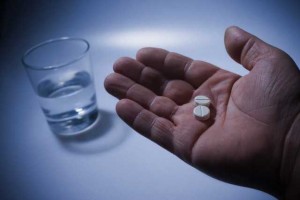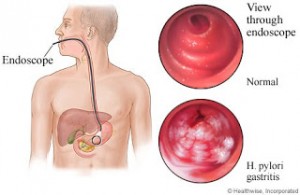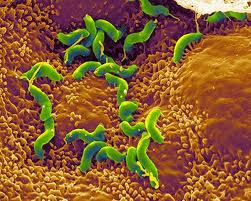Introduction
In this article I describe that physicians should treat causes, not symptoms. When you see a physician about a health problem, he or she generally listens to your symptoms and examines you. This leads to a diagnosis and the treatment of your symptoms. Medicine has been evolving since, anti-aging medicine has become more prominent and comprehensive medical practitioners have started to treat differently. Some examples below best explain the new approach. This is important as many general practitioners continue to treat symptoms and neglect to search for causes.
Big Pharma and the status quo
Big Pharma is trying to keep the medical system in the “status quo” (the way it is), because they make big money by having general practitioners try out different ineffective medications (this way the profits keep on coming in.) One example is the cholesterol story. High cholesterol only causes 50% of heart attacks, but physicians continue to prescribe statins whenever they detect high cholesterol levels to prevent a heart attack. But high cholesterol could be a cause from hypothyroidism (when the thyroid gland does not produce enough thyroid hormone). Diet can also play a role, if the patient eats too many helpings of fatty meats and drinks alcohol regularly. Just prescribing statins to lower cholesterol is not the answer, treating the cause is!
I am going to describe 5 clinical examples where physicians usually treat symptoms instead of the causes. If you are in a hurry, just read example 3 below (gastritis and duodenal ulcer). After that you can skip forward and read the conclusion, where I will summarize what I think we should learn from this.
1) Rheumatoid arthritis
Rheumatoid arthritis (RA) is an autoimmune disease where autoantibodies attack the joint surfaces. It is a multifaceted disease and typically requires a rheumatologist to order detailsed tests and formulate the treatment. The standard treatment for RA is summarized in this link. Before engaging in these toxic treatments, it is very worthwhile to study this link and see, if any of your food components may have triggered your arthritis. Various agents in the food can contribute to the development of autoantibodies, such as wheat, soy, MSG, even salicylates. An elimination diet approach could pinpoint if there is any food component that may be the cause of your RA.
Hormonal deficiencies in RA patients
Dr.Lichten treated many RA cases and found (Ref.1, p. 85 and 86) that many patients had hormonal deficiencies. He points out in particular that these patients often lack DHEA. DHEA is known to treat immune deficiencies and T cell responses were observed to raise 10-fold after DHEA supplementation; IGF-1 levels (an indirect measure of human growth hormone) increased and muscle mass improved when exercised as well along with DHEA replacement. RA patients responded well to relatively low doses of DHEA (25 mg daily for women and 50 mg daily for males). When other hormone tests are done to look for deficiencies, Dr. Lichten found sometimes thyroid deficiencies requiring hormone supplementation.
Sex hormone deficiencies often present in RA patients
Similarly, when saliva tests are done to look for sex hormone deficiencies, there may be progesterone and/or estrogen deficiency in women and testosterone deficiency in males that needs to be replaced with bioidentical hormones. In RA patients there may be adrenal gland deficiency setting in, which can be diagnosed by a four-point saliva cortisol hormone test. Only these cases of true hormone deficiency will benefit from small doses of cortisol (the original bioidentical human hormone) given four times per day.
Here is a summary of the usual recommendations for home remedies for treating rheumatoid arthritis. Using electro acupuncture can be very useful for controlling chronic pain, but you still need to work out the cause for your particular case of RA.
2) High Blood Pressure
Most cases of high blood pressure (hypertension) are simply there without a particular cause. It used to be called “essential hypertension”, a fancy name meaning “essentially, we do not know the cause”. The doctor will start treatment with drugs to bring high blood pressure down. Before that the doctor is supposed to ask you to make a good effort to change your life style (cutting out additional salt, exercising, weight loss), but this is often glossed over and drugs are used right away. Drugs for hypertension are not harmless; here are some of the side effects.
Medical textbooks unclear about causes of high blood pressure
The medical textbooks are not very clear on what causes high blood pressure. With renal causes (narrowing of a renal artery) a stent can be placed, the cause is treated and the blood pressure normalizes. As indicated, essential hypertension is the name for the majority of other cases of high blood pressure where officially no cause is known. Patients are usually put on life-long antihypertensive medications, often several drugs in combination, to bring the blood pressure down to 120 over 80.
Factors that contribute to high blood pressure
Despite the notion that we do not know the cause of high blood pressure, we do know that a number of factors can contribute to developing high blood pressure: too much salt in the diet, too much nicotine from smoking and too much alcohol consumption.
A lack of nitrates from green vegetables can cause high blood pressure as well. Nitrates are necessary for the body to produce nitric oxide, a powerful messenger that dilates blood vessels lowering blood pressure. It is produced every second by the lining inside the walls of your arteries. Greens and vegetables, particularly beets, provide nitrates for nitric oxide production.
Nitric oxide and omega-3 fatty acids
Nitric oxide, along with omega-3-fatty acid and prostaglandins are important in relaxing the arterial walls, thus lowering high blood pressure. We also know that in diabetes and obesity high blood pressure is very common, because inflammatory substances circulate in the blood, which interfere with the normal production of the blood pressure lowering nitric oxide.
Treating high blood pressure with the conventional drugs will mask the real underlying causes.
The DASH diet
The DASH diet has helped a lot of people to get their blood pressure under control. However, the critical point in that diet is the limitation of the amounts of grains. In my opinion, wheat and grains, starches and sugar are all empty calories and only stimulate your appetite because of the high leptin and gliadin content from wheat and wheat products. According to the cardiologist, Dr. William Davis, cutting these out will cure not only many cases of hypertension, but also diabetes and obesity. Many physicians criticized him, but in my opinion his work is on solid researched ground. If a patient honestly gives lifestyle changes a try, many side effects and deaths from antihypertensive drugs could be avoided.
3) Gastritis and duodenal ulcer
You see your doctor, because lately you regurgitate acidy stomach contents. You may be diagnosed with gastritis and get a prescription for an acid suppressive drug. But before you take proton pump inhibitors (PPI) study the side effects here. The interesting part is that many chronic gastritis cases are associated with a bacterium called H. pylori. Unfortunately, cimetidine, ranitidine and particularly PPI’s treat the acid problem (the symptomatic treatment of acid suppression). But on the longer term the triple therapy encourages H. pylori to grow more, particularly in the stomach. H. pylori undermines the lining of the stomach and the duodenum. This interferes with the protective mucous production, which protects you from gastritis and ulcers.
Breakdown of the mucosal barrier
Dr. Murray explains that the cause of gastritis, gastric ulcer and duodenal ulcer is the breakdown of the mucosal barrier (Ref. 3, p.73-75). The symptomatic treatment of the H. pylori infection with triple therapy (2 antibiotics and a PPI) is the conventional medical treatment, but in many cases it does not cure H. pylori. Some patients develop diarrhea from a Clostridium difficile super infection as a result of the antibiotics from the triple therapy requiring even more expensive antibiotics for that condition. This only happened, because the physician treated the patients’ symptoms instead of the cause. The cause of gastritis and duodenal ulcers is a weakening of the lining in the stomach and the duodenum resulting in a breakdown of the mucous barrier.
Too much wheat consumption can be a cause
In some people dietary habits play a role, like too much cereal and wheat consumption with too little alkaline vegetables in the meals to neutralize the acid formation (see Ref. 2 for more details). However, when a simple licorice compound (DGL, which stands for deglycyrrhizinated licorice) is given, the symptoms from gastritis, acid reflux, and ulcers in the stomach or duodenum disappear. DGL supports the lining of the stomach and duodenum and re-establishes the defense against the acidy milieu. Not only that, but after a few weeks of DGL treatment all of the findings on endoscopy such as inflammation and ulcerations disappeared.
DGL restores the stomach lining
Dr. Murray states that he has not encountered a case of gastritis or ulcer that would not have responded. It appears that the cause of gastritis and ulcers in the stomach and duodenum is not from too much acid, not from H. pylori infection, which appears to just be a concomitant infection, but actually is due to a breakdown of the barrier in the lining of the stomach and duodenum, which responds to DGL. The other interesting thing is that you can buy DGL in the health food store; the dosage is two to three chewable tablets on an empty stomach three times per day. According to Ref. 3 the patient has to take DGL 8 to 16 weeks, after which there is a full therapeutic response. Pepto-Bismol is another coating substance that is available over the counter and works well for minor stomach upsets.
4) Chronic back pains and insomnia
Many people see their chiropractor for chronic recurrent back pains and their physician for insomnia to get sleeping pills. It all depends what the underlying causes are of back pains and insomnia. If there is a misalignment in the spine, a chiropractor doing manipulation would be a reasonable approach and the back pain symptoms often disappear. However, thyroid deficiency, adrenal gland insufficiency or adrenal gland fatigue may also be the cause of back pains and muscle cramps. Unless the physician treats the underlying cause (in the case of hypothyroidism treatment with thyroid hormones), the back pains stay.
Muscle pain in fibromyalgia patients
In fibromyalgia where muscle pains are all over the body, the standard treatment with antidepressants and pain pills just will not do it on the long-term. These patients require a detailed work-up with analysis of the hormonal status. Often, they are suffering from a lack of thyroid hormones, a lack of sex hormones (in women a lack of estrogen and progesterone, in men a lack of DHEA and/or testosterone). But they may also have weak adrenal glands and a lack of growth hormone. An anti-aging physician (A4M) can order the appropriate tests and treat the underlying causes.
Insomnia in fibromyalgia patients
Fibromyalgia patients often have insomnia (sleep disorders). Dr. Lichten (Ref.4) recommends GABA in small doses (125mg to 250 mg) at bedtime along with 500 mg of L-tryptophan. He also recommends 4000 IU – 5000 IU of vitamin D3 (as often insomnia patients are deficient in vitamin D3) as well as 500 mg to 1000 mg of magnesium. If this alone is not sufficient, melatonin, 1 mg to 3 mg at bedtime will be beneficial. Dr. Lichten cautions that GABA leads to tolerance quickly, so the patient should take GABA only 5 days out of 7 to allow the body’s receptors to recover. This alternative approach to treat insomnia prevents addiction to sleeping pills (hypnotics).
5) Asthma symptoms
Not every case of asthma needs steroid inhalers and salbutamol or other bronchodilator inhalers as treatment. Low thyroid hormone levels can also cause asthmatic symptoms of wheezing and shortness of breath. It is important to listen to the patient’s symptoms, but the treatment will only be successful when the cause is treated. Dr. David Derry described in this link how many of his severe asthma patients had iodine deficiency and low thyroid hormones and no longer had to see him when iodine treatment and desiccated thyroid hormone replacement was given as treatment. This goes against what the standard recommendation for asthma treatment is, but it seems to get patients unhooked from dependence on steroid inhalers.
Steroid dependency from anti-asthmatic inhalers can suppress the adrenal glands and lead to adrenal gland insufficiency.
Corticosteroid inhalers in asthma treatment can suppress the stress response
The adrenal glands are vital for coping with stress as the more stress you are under, the more your pituitary gland produces ACTH hormone, which in turn stimulates the adrenal glands to produce cortisol. However, a significant percentage of patients with asthma that been on corticosteroid inhalers for a long time, experience a suppression of the pituitary gland and the adrenal glands cannot produce the required stress hormones; in other words, adrenal fatigue or adrenal insufficiency can set in.
This is an example where corticosteroid inhalers control asthma symptoms, but they undermine the stress hormone circuit to the point where the patient experiences another disease (called a “iatrogenic disease”, a disease from the side-effects of drugs). Treatment of adrenal fatigue is described in this link.
Conclusion
Medicine can become quite complex as these examples show. Many times physicians tell their patients that they do not know the cause of their symptoms. However, this is not always true, but conventional medicine continues to hold onto the old dogmas. With the third example above (gastritis and duodenal ulcer), until the mid 1980’s the original theory in medicine was that too much acid production would be the cause of these conditions and treatment concentrated on suppressing acid production. Then the new theory came up that H. pylori, a bacterium would be the cause of chronic inflammation, which together with too much acid would cause the condition. That is why physicians now treat it with the triple therapy, a good deal for Big Pharma, but a bad deal for many patients.
DGL, a simple licorice compound can strengthen the lining of the stomach
Patients still do not experience a cure, but develop a worsening of their conditions as H. pylori growth proliferates, particularly from the PPI’s, which undermines the lining of the whole stomach. As pointed out above DGL, a simple licorice compound, which is available in health food stores, can strengthen the lining of the stomach and duodenum, which at the same time gets rid of the H. pylori problem without any other drugs.
The problem with conventional medicine is that in many cases physicians still treat symptoms instead of treating known causes. Big Pharma supports this, as it is expedient for them to protect their multi-billion-dollar industry. Patients should ask their physicians to treat the causes of their diseases rather than the symptoms.
References
1. Dr. Edward M. Lichten: Textbook of bio-identical hormones. ©2007 Foundation for Anti-Aging Research, Birmingham, Michigan, USA
2. William Davis, MD: “Wheat belly. Lose the wheat, lose the weight, and find your path back to health.” HarperCollins Publishers Ltd., 2011.
3. Michael T. Murray, ND: “What the drug companies won’t tell you and your doctor doesn’t know”. Atria Books, New York, 2009.
4. Dr. Edward M. Lichten: Textbook of bio-identical hormones. ©2007 Foundation for Anti-Aging Research, Birmingham, Michigan, USA








